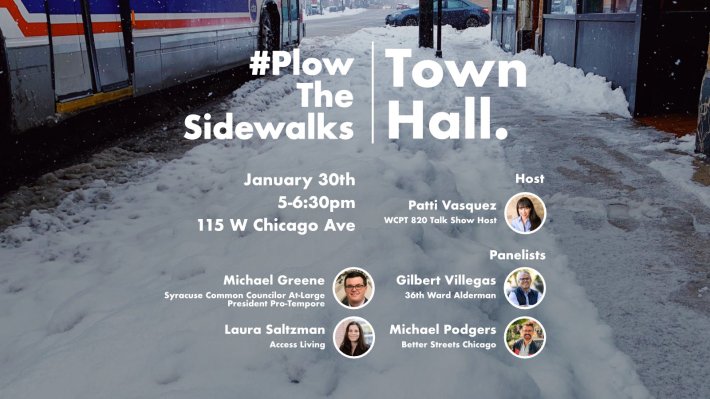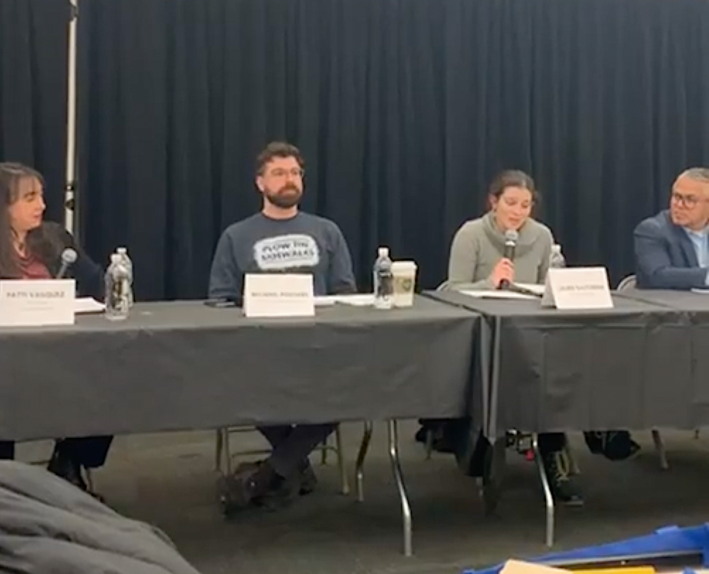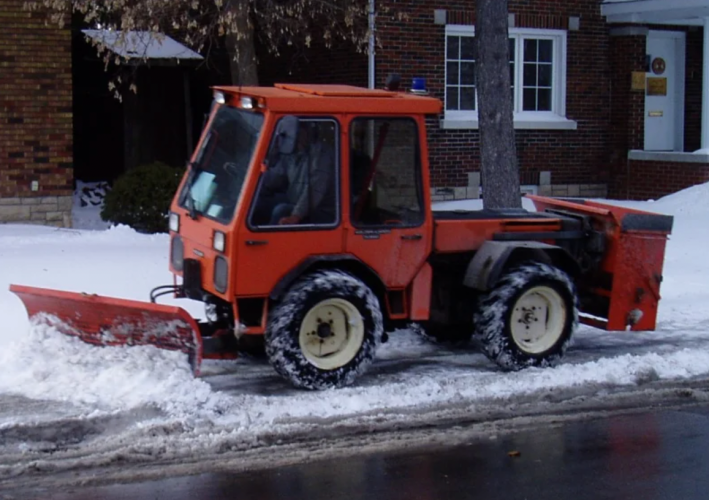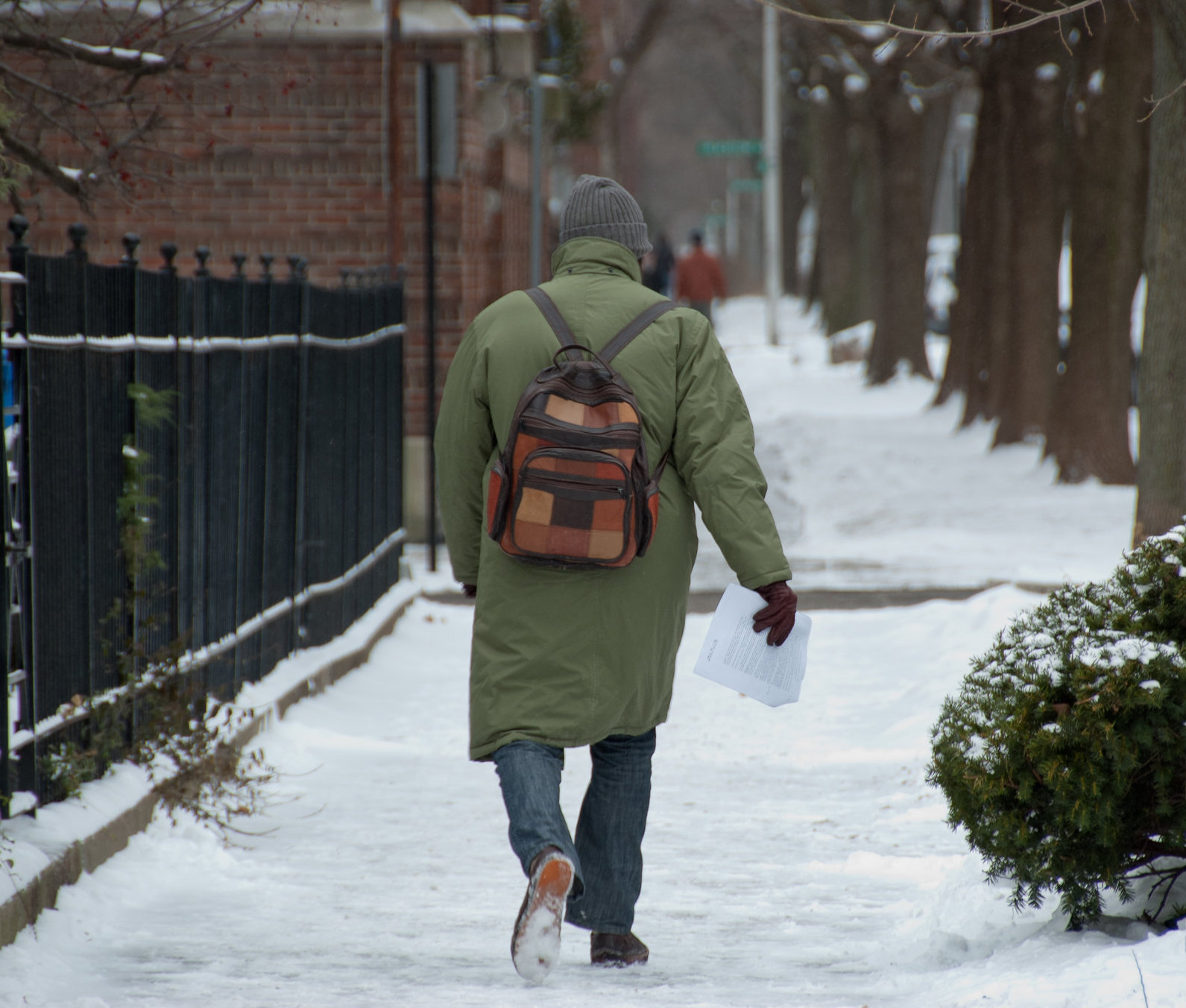On Monday, the disability rights group Access Living and the sustainable transportation advocacy organization Better Streets Chicago hosted a town hall on their #PlowTheStreets campaign for municipal sidewalk snow clearance, launched in February 2021. The event was held at Access Living's headquarters, 11r W. Chicago Ave., and moderated by WCPT 820 AM radio host and comedian Patti Vasquez.

"This is something that we know we can do and we know can be scaled to a city the size of Chicago, because Toronto is doing this already, as are several other large cities in Canada," said Michael Podgers, policy lead at Better Streets. He also pointed to "other smaller cities throughout the United States, such as Syracuse add Rochester, New York, adding, "this is also pretty common in other parts of the cold winter world."
Podgers discussed why plowing sidewalks would be a worthwhile expenditure of taxpayer money. He noted that about a quarter of Chicago households don't have cars. The initiative would especially benefit people with disabilities, families with young children, and pet owners, but it would be helpful to anyone who regularly gets around the city on foot and uses transit, i.e. just about all Chicagoans.
Access Living transportation policy analyst at Laura Saltzman noted that the program would have the additional virtue of assisting people with disabilities who have trouble getting their own sidewalks cleared. "I cannot shovel a sidewalk. I can afford to make sure that it's taken care of in front of my building, but people with disabilities are disproportionately low-income" and may face fines if they can't afford to hire someone to clear their sidewalk for them.

Ald. Gilbert Villegas (36th) said he broached the pitched the concept of municipal sidewalk plowing with his City Council colleagues as an economic development opportunity. "People with disabilities, seniors, as well as parents with strollers... they're unable to participate in the economy by walking down a clear sidewalk," he said. "Oftentimes if they're in need of medicine or food [they have to] use some of the platforms, whether it's DoorDash, Uber Eats, which would incur a cost... We have to remember that sidewalks are a form of transportation."
"I've also talked to my colleagues about when tourists come to the city of Chicago," Villegas added. "We get upwards to 50 million people a year that come to the city of Chicago. So we want to make sure that they have the ability to into the stores and spend as much money as possible while they're here... So it's not just the just thing to do, but also makes sense financially because it helps our budget. It'll get more people out of their house, into the stores, into the movie theaters, and spending money."

Panel members said they learned a lot about best practices from Chicago, such as machinery that effectively plow sidewalks without damaging the concrete. "We have also seen [municipal sidewalk clearance] in some local suburbs here in Chicago," said Podgers. As for funding, Villegas said one possible source would be Special Service Areas, retail districts with a special tax that's reinvested into corridor improvement local projects.
"As a lifelong Chicagoan, we've always had budget issues," said Saltzman. "No one has ever said that because of the budget issues, we can't afford to clear the streets. So that's kind of my attitude towards the sidewalks. If we can afford to clear the streets then we can afford to clear the sidewalks."
Watch a video of the town hall here.

Did you appreciate this article? Please consider making a tax-deductible donation to help fund Streetsblog Chicago's next year of publication. Thanks!




